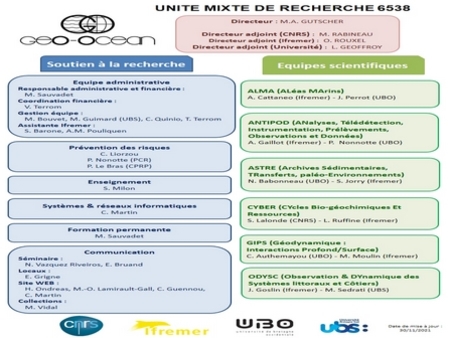Biology
The biology team will observe, collect and identify biological samples, ranging from microorganisms to megafauna, in the different types of habitat explored (volcanoes, faults, sediments, active and inactive hydrothermal sites, and hydrothermal plumes).
The results will be aligned with those of scientific expeditions already conducted on active sites (BICOSE expeditions) with the Nautile and the ROV Victor6000. The team will be studying the free microbial communities associated with hydrothermal plumes and hydrothermal structures of differing maturity. The biologists are interested in the life cycle and reproduction of Rimicaris exoculata and Rimicaris chacei shrimp that dominate local communities, as well as their symbiotic relationship with microorganisms. They will also study colonisation processes and connectivity that are essential for the long-term preservation of local populations.
The biologists will conduct an initial biodiversity inventory of the newly explored sites, based on both morphological observation and DNA analysis to identify the species present. The Nautile will collect sediment cores and water samples and will carry out in-situ analyses in order to characterise the habitats. Shrimp will be collected by the Nautile’s aspirator and FISH sampler, tools which preserve both the animals and their symbiotic bacterial community. The IBIS sampler will provide samples of pressurized fluid for microbiology. During this cruise, new experimental modules (DEEPSEEDS) will be deployed. DEEPSEEDS are colonization surfaces associated with mini particle traps which will allow the scientists to monitor organism settlement. They will be deployed in different habitat types along an active hydrothermal gradient, and will be recovered during the next BICOSE3 cruise.
- Marie-Anne Cambon-Bonavita, microbiology and symbiosis researcher, Ifremer
- Valérie Cueff-Gauchard, microbiology and symbiosis specialist, Ifremer
- Florence Pradillon, researcher specialised in hydrothermal larvae, Ifremer
- Erwan Roussel, researcher specialised in geomicrobiology, Ifremer

